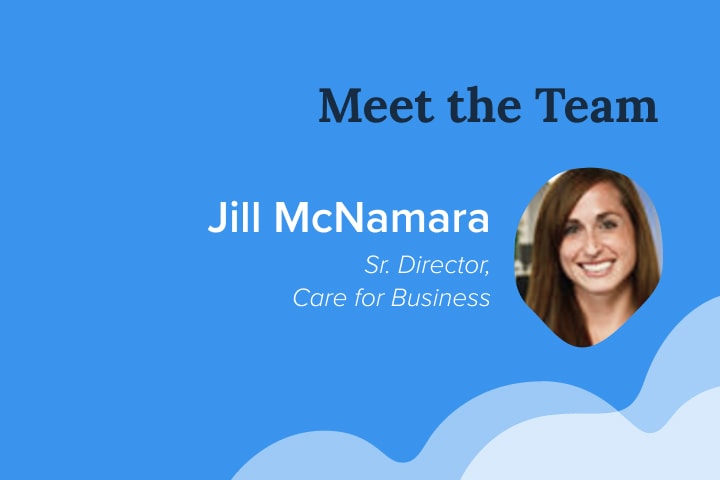The modern workforce is a tapestry of diverse responsibilities, and among them, caring for aging seniors stands out as a significant challenge for working caregivers and their employers. When it comes to the current state of caring for aging loved ones, more than one in six working Americans is already a caregiver to the elderly, and 70% of these caregivers are suffering work-related difficulties.
Here are the top five reasons why employees need Backup Care to effectively manage their caregiving responsibilities:
1. Recovery Support During Unforeseen Emergencies
Life is unpredictable, and when an aging loved one requires sudden medical attention or assistance, employees find themselves in an impossible position, caught between work demands and dropping everything to care for their loved ones in the aftermath. Adult backup care helps employees access adult caregivers during changes in their senior’s life, without sacrificing productivity at work. Employers need to understand that balancing caregiving duties with professional responsibilities can often lead to divided attention, reduced efficiency, and unplanned absences from their employees. By removing the stress of constantly worrying about their loved one’s well-being, backup care empowers caregivers to excel in their roles and keep the rest of their lives moving forward.
2. Respite Care for When Regular Caregivers Need a Break
Caring for aging seniors often involves complex medical, physical, emotional, and financial needs, and the stress of these needs takes a real toll on an employee’s mental and physical well-being, which leads to burnout. In 2023, 40-70% of caregivers reported clinical symptoms of depression, and 23% reported negative effects to their physical health as well. Backup Care can be used to give working caregivers a break, to tend to their own lives and careers, without sacrificing the safety and care that their aging loved ones deserve. Currently, 1 in 3 caregivers ultimately decide to leave the workforce to focus on their caregiving responsibilities at home. With reliable access to Backup Care, employers can leverage caregiving benefits to prevent increased turnover and protect their employees from burning out.
3. Travel and Special Occasions
Life does not stop simply because someone is a caregiver. Whether it’s a crucial business trip or a long-awaited celebration, Backup Care can allow employees to confidently pursue their professional and personal commitments, knowing that their aging loved ones are in capable hands. By supporting working caregivers with the means to stay plugged into their careers and personal lives, employees can maintain work/life balance while ensuring their aging loved one is safe and cared for. For employers this can mean greater equity among employees, where no one feels left behind for work opportunities or important milestones.
4. Extended Family Support
Backup Care benefits more than just aging parents, but can be used to support even extended family members. Whether it is for grandparents, aunts, or uncles, next door or across the country, employees everywhere have loved ones that are getting older and will need care. According to the U.S. Census, the country’s senior care problem is only going to get worse as the 2030s will mark the first time in U.S. history that the population of people 65 and older will exceed that of people under 18. With Backup Care in place, employers can provide a safety net for their employees no matter which adults need help in their life.
5. For Self-Care
Backup Care is not just for family members. Adult Backup Care can be used by an employee for themselves whenever they have a need for additional support at home, like recovering from surgery or a serious injury. Not only does Backup Care make an employee feel less alone when recovering, but it can also help to alleviate the financial burdens of paying for additional care or when it isn’t possible for partners or other family members to take time off work for long recoveries.
With these 5 crucial uses in mind, it is no wonder that 43% of employers reported in the latest Future of Benefits Report that they are prioritizing senior care benefits like Backup Care in 2023. But more companies need to follow their lead. Especially as we are rapidly approaching an unprecedented decade for adult care needs, where employers will need to lean on Adult Backup Care as a vital support system.






